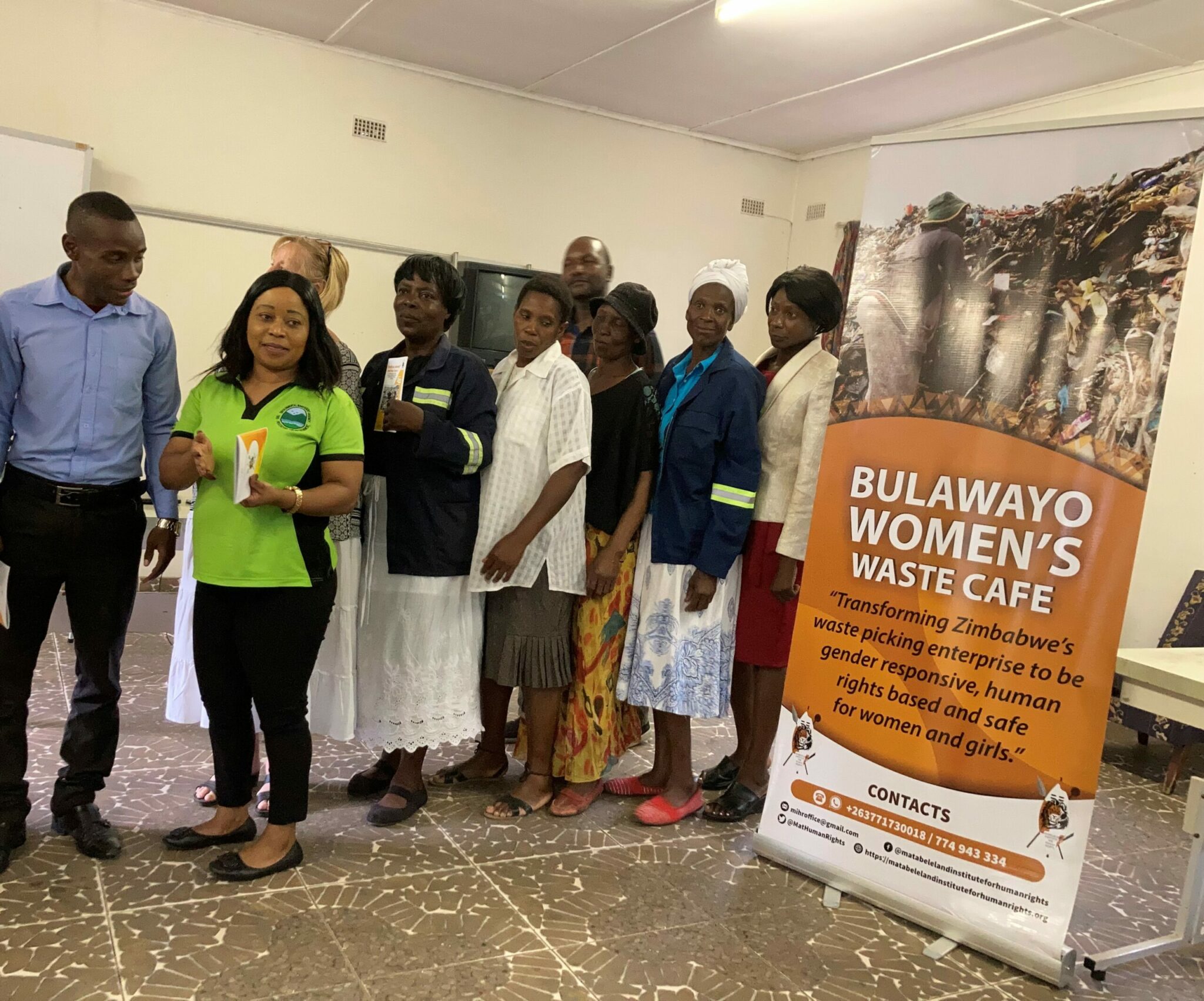Waste picking is now a flourishing form of employment in Bulawayo, Matabeleland Institute for Human Rights (MIHR) has said.
MIHR launched a yearlong project called Bulawayo Women’s waste café project which sought to develop a pilot gender responsive human rights-based approach to the protection and promotion of women and girl waste pickers in Zimbabwe.
The project is aimed at responding to the incidences of violence, women abuse, gender-based violence, exploitation and unsafe working practices that devil the waste picking enterprise in Bulawayo and Zimbabwe as a whole.
The project which was piloted on 115 female waste pickers from Pumula, Magwegwe, and Ngozi Mine also saw them being trained on issues of human rights, digital skills, gender, advocacy, and counselling services.
Speaking during the Women’s waste café closeout interface meeting, Monday, which was attended by female waste pickers, stakeholders from the Ministry of Women Affairs, and Environmental Management Agency among others, MIHR coordinator Khumbulani Maphosa, noted that the industry was growing.
“We noted that it’s a growing industry. People are joining this business because of impoverishment, underdevelopment and lack of employment. Most of the people are now self-employed, it’s another form of vending that is booming in Bulawayo and in Zimbabwe,” said Maphosa.
He said they also noted that waste pickers were also contributing to the cleanliness of the city.
“We have been used to vendors but waste picking is also big. We also noted that waste pickers are contributing a lot to the cleanliness of this city, not only for Bulawayo but the whole world. For instance in Bulawayo if you ask EMA and the number of tickets that they have given to Bulawayo City Council as a result of issues of landfill site, you will be shocked the number of tickets that they have been given but it doesn’t solve the problem because they also have problems of compactors and the like. If waste pickers are not there, waste management in the city will be chaotic, so they are coming to help us in the waste management in the city,” said Maphosa. He however said they also noted that there were human rights violations within the sector.
“Number one there is abuse from the local authorities especially the employees of the local authority, you will notice that BCC has contracted those people who ferry bins; those guys have also discovered that there is money so they now harass women waste pickers and their waste,” said Maphosa.
He added: “We discovered that there is a 1979 by-law of the Bulawayo City Council which says that if waste is outside a household, it now belongs to the BCC so in essence those people are right to take the waste but the way it is done, we still have questions. Number two the motive of doing it, we have questions because they are not taking it saying they are making a mistake, but they are taking it because they want it.”
Maphosa added that women waste pickers were also facing abuse from male waste pickers.
“There is pushing and shoving within the sector. Women are also losing their stuff to theft there, so these are the things that we noted,” he said.
Meanwhile, a female waste picker, Thembeni Moyo, from Cowdray Park said she managed to buy a residential stand using the money from waste picking.
“Through the project, I learnt about issues of finance and how to save and manage money. Before I would use the money to buy chicken cuts and Mahewu for my child but now I am now owning a stand in Lupane and my family has now accepted my job,” said Moyo.

